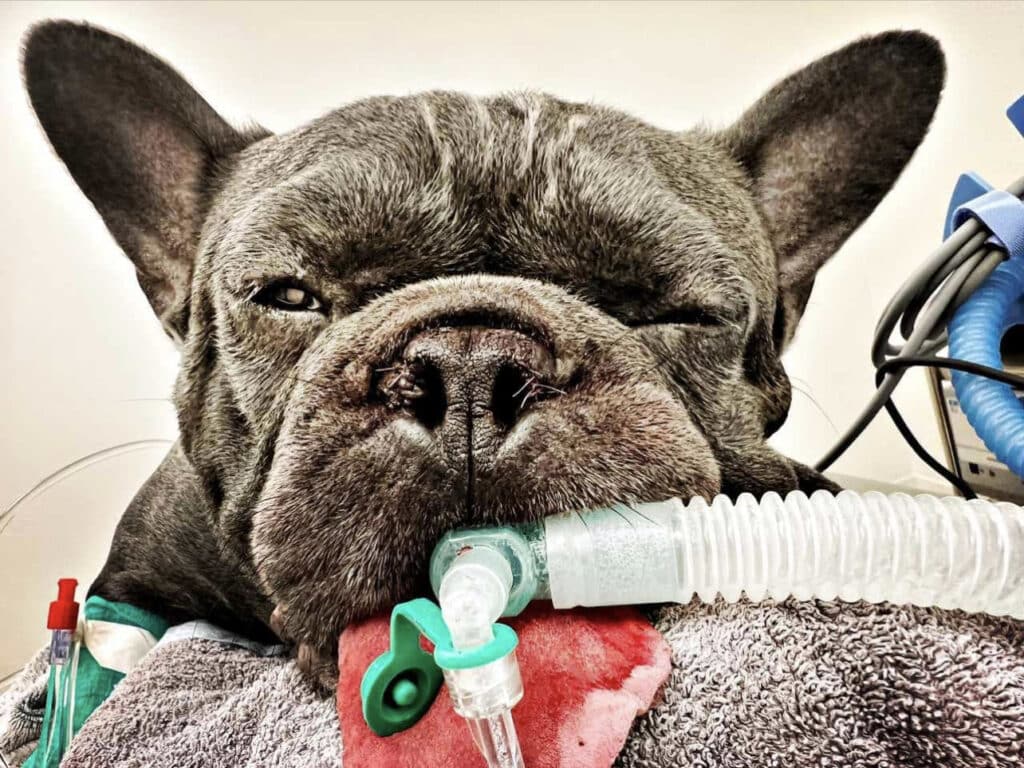Dogs are our loyal companions who give us a lot of joy and love. However, not all dogs are the same, and some breeds have special characteristics and needs. The Brachycephalic dog is one such breed that often suffers from breathing problems due to its physical characteristics. In this article we will take a closer look at the brachycephalic dog and find out how we can best help them.
What is a Brachycephalic Dog?
Brachycephaly refers to a particular facial shape in dogs in which the skull is short and wide, and the nose and muzzle are flat. This face shape is characteristic of some dog breeds such as bulldogs, boxers and pugs. The term brachycephaly is derived from Greek and means "short-headed". A dog with this face shape is called a brachycephalic dog.
Which dog breeds are affected by brachycephaly?
There are many dog breeds affected by brachycephaly. Here are some of the most famous breeds:
- Bulldog
- boxer
- pug
- Boston terriers
- Shih Tzu
- French bulldog
- Cavalier King Charles Spaniel
Why do Brachycephalic dogs have breathing problems?
The flat face shape of the Brachycephalic dog means that his airways are restricted. The nose and muzzle are shortened and narrowed, causing the dog to have difficulty breathing. A brachycephalic dog often breathes quickly and loudly and can tire quickly when exerting himself. This can lead to other health problems, such as heart problems and overheating.
How can you help a brachycephalic dog?
If you have a brachycephalic dog, there are some things you can do to help him:
- Keep your dog cool in warm weather and avoid exertion in the midday heat.
- Avoid unnecessary excitement and stress as these can lead to faster breathing.
- Make sure your dog gets a healthy and balanced diet to keep him healthy.
- Talk to your veterinarian about possible medical treatments , such as surgery to open the dog's airway.
- Be careful not to let your dog get too fat, as being overweight can worsen his breathing problems.

FAQs
Is Brachycephaly a genetic problem?
Yes, brachycephaly is indeed a genetic problem that occurs in certain breeds of dogs. It is important to understand that these dogs are not intentionally bred to have breathing problems. Rather, this is a side effect of breeding to achieve certain characteristics such as a broad, flat face and a short snout. However, it is important to emphasize that not every dog with a flat face shape automatically suffers from brachycephaly. Some dogs may have a less pronounced facial shape and no breathing problems.
Can Brachycephalic Dogs Be Helped to Overcome Their Breathing Problems?
Yes, it is possible to help brachycephalic dogs overcome their breathing problems. There are several medical treatments that can help open the dog's airways and make his breathing easier. However, some of these treatments are quite invasive and may involve risks. It is important to speak with your veterinarian and consider all options before making a decision.
Should you adopt a brachycephalic dog if you are concerned about his health?
The decision to adopt a Brachycephalic dog should not be made solely based on their health issues. It is important to educate yourself about the specific needs of this breed of dog and ensure that you are able to meet those needs. There are many loving and responsible owners of brachycephalic dogs who take care of their dogs and give them a happy and healthy life.
Are there other health problems that can occur in brachycephalic dogs?
Yes, brachycephalic dogs can suffer from other health problems due to their physical characteristics. These include eye problems, skin problems and problems with the digestive system. It is important that brachycephalic dogs be examined regularly by a veterinarian to ensure they remain healthy.
Summary
The Brachycephalic dog is a special breed of dog that often has breathing problems due to its flat face shape. It is important to be aware that these problems are due to genetic factors and that not all dogs with a flat face shape automatically suffer from brachycephaly. If you have a brachycephalic dog, you should learn about their specific needs and make sure you help them live a happy and healthy life. There are many treatment options that can help improve your dog's breathing problems, but it is important to speak with your veterinarian to find the best option for your dog.
